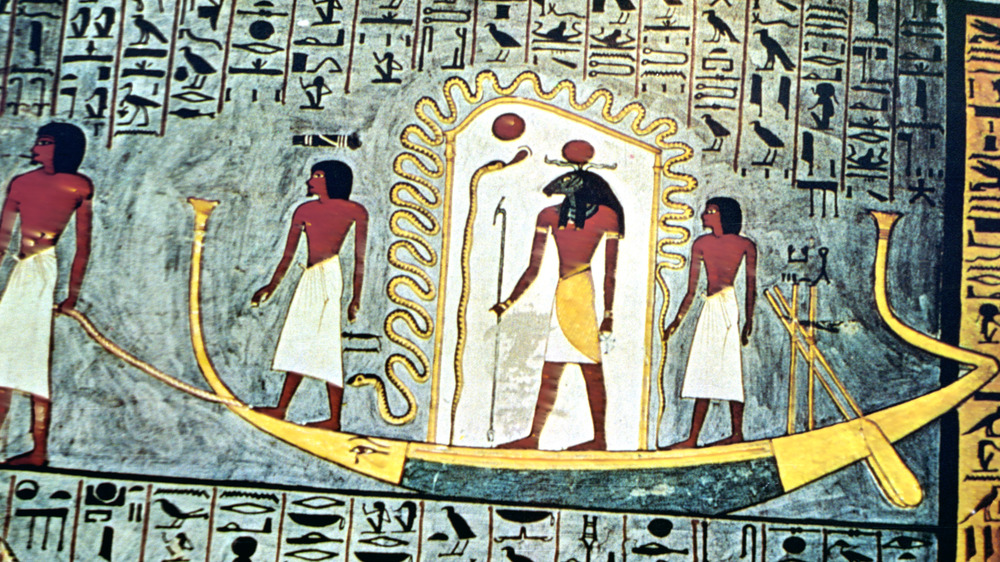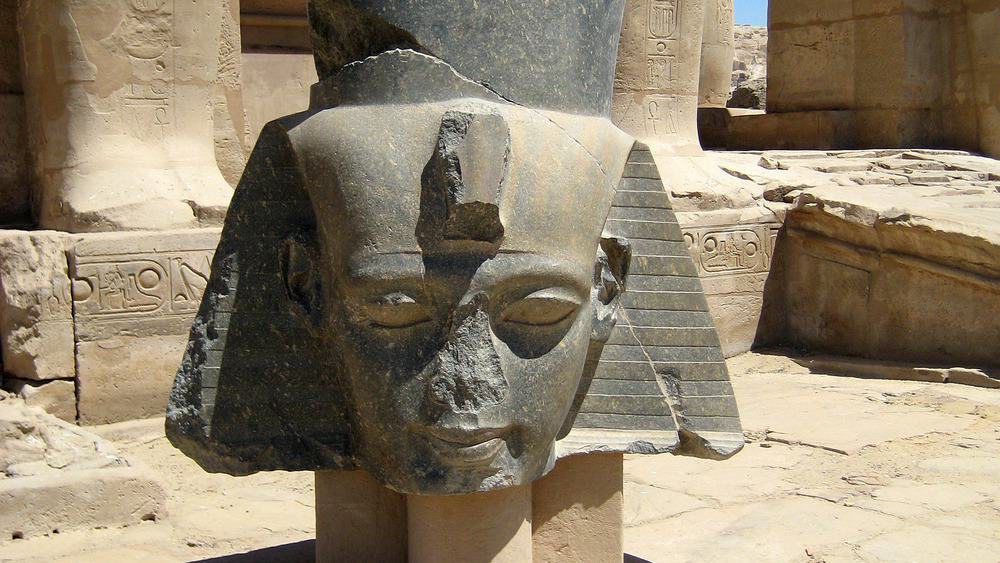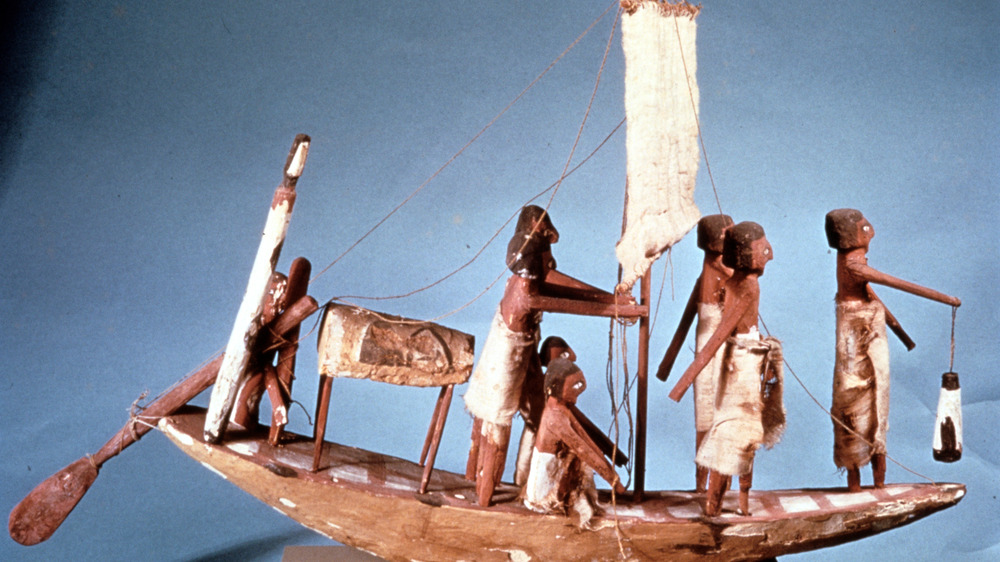This Is The Last We Heard Of The Sea Peoples
Ancient mysteries are hard to solve. It gets harder when there's very little archaeological evidence surrounding it. The lack of artifacts is why historians have a hard time piecing together more information about the Sea Peoples.
The Sea Peoples were a group of naval pirates who lived around 1276 to 1178 BCE, explained the World History Encyclopedia. They mainly attacked Egypt and ransacked cities. It was said that once the Sea Peoples attacked, the end of one civilization followed. And this was the case for several empires across Greece, Afghanistan, and Egypt, said NPR.
No one can say for sure where the Sea Peoples came from, as most of what is written about them only came from areas they attacked. Most of what we know about the Sea Peoples comes from records written during the reigns of Ramses III and Merneptah. Some researchers note that the Sea Peoples may have also been involved in skirmishes with Ramses II's fleet, but they're not explicitly called people from the sea. A French Egyptologist coined the designation Sea Peoples in 1881, thousands of years after.
The three Egyptian pharaohs mention battles against naval pirates who were fierce in their manner, but they were ultimately defeated or pushed back. But they also talked about how the Sea Peoples had been partly responsible for the collapse of several civilizations such as the Mycenaeans and the Hittites.
No one knows where they were from, or if they were Greek or Minoans.
Many pharaohs had to deal with them
The first time the Sea Peoples were mentioned was during the reign of Rameses II, also known as Ramses the Great. In these accounts, the Sea Peoples (or at least people resembling the Sea Peoples) supposedly allied with the Hittites. World History Encyclopedia said this happened around the time the Hittites captured a vital trading route. In the same account, Ramses II also said the Egyptian army employed Sea Peoples as mercenaries. The only reason Ramses II talked about the Sea Peoples is because he defeated them and took back the trading post. Ramses II also mentions that he beat the Sea Peoples during his second year, when they came really close to the Nile.
Merenptah, who ruled about a decade after Ramses II, also battled the Sea Peoples in the fifth year of his regime. Once again, he also claimed victory. He said his fleet managed to prevent the Sea Peoples from establishing permanent settlements. Merenptah called the Sea Peoples "the Nine Bows," a traditional term for groups of enemies.
Other than Egyptian pharaohs, the American Society for Overseas Research also wrote that different accounts of the Sea Peoples showed up in Syrian texts. These writings point to invaders using foreign ships.
Both Ramses II and Merenptah thought Egypt was rid of the Sea Peoples forever, but it wasn't the end of their terror. It wasn't until Ramses III that it seemed the Sea Peoples were defeated forever.
The end of the Sea Peoples
Ramses III fought the Sea Peoples in 1180 BCE. The Sea Peoples had destroyed the trading center of Kadash and attempted to invade Egypt. Ramses III claimed victory, only to find the pirates returning soon after. He said the Sea Peoples had a group of Libyans with them and had already lain waste to Hittite countries.
Knowing the trouble the Sea Peoples caused his predecessors, Ramses III set up ambushes around the Nile Delta. His forces managed to funnel the Sea Peoples to the city of Xios in 1178 BCE. By this time, the Sea People's fleet had been reduced, and they were easily defeated by the Egyptian army. Ramses III said many of the surviving Sea Peoples were taken as slaves or forced to join the Egyptian military.
This was the last time the Sea Peoples were mentioned in history. After Ramses III, it seemed as if they had vanished into thin air. Historians think they didn't die off; they just were assimilated into Egypt.
As to who they were — well, that's a mystery that will likely never be solved. Since most of their historical mentions say they were a group of people working with another ethnic group, it's hard to pinpoint where they came from. And since the records of their attacks all involved them losing, it's easy to understand why Egypt was not that concerned about knowing who they were.


